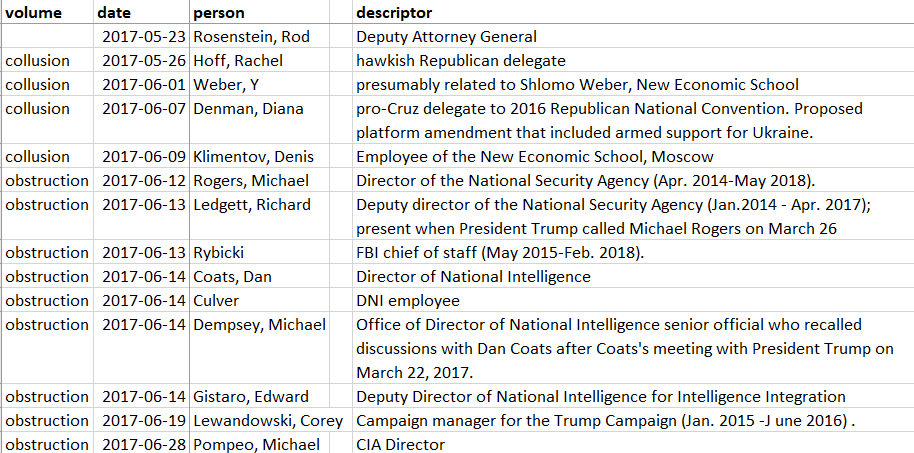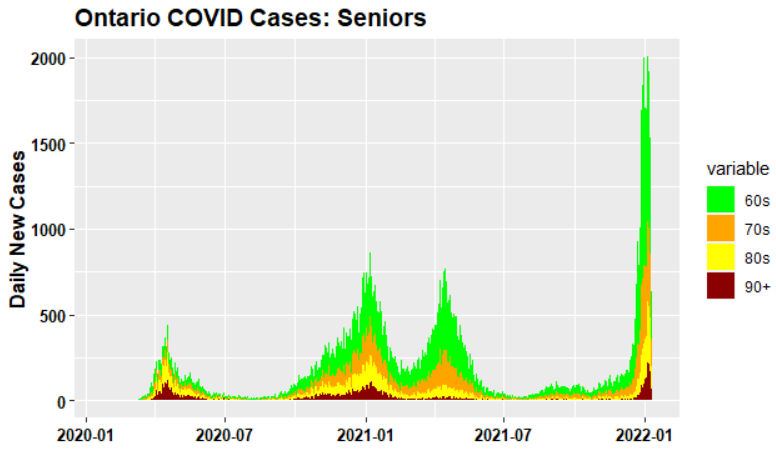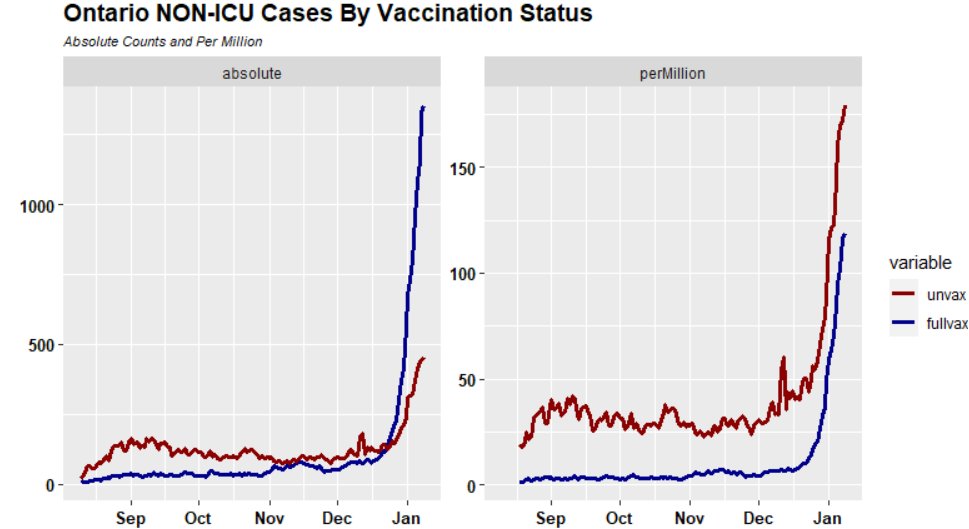
1/ I went through Mueller Report and compiled dates and persons of all interviews reported in footnotes so that I could sort by dates or by person/dates. (Why didn't Mueller provide appendix of ALL interviews?) Interesting to see how Mueller started off. 

2/ Mueller's interviews (after Rosenstein) began with two anti-Trump Republican delegates (Rachel Hoff, Diana Denman) who had proposed bellicose amendment to platform on Ukraine. See Aug 2016: thedailybeast.com/trump-campaign…
3/ Trump campaign official JD Gordon suggested more moderate language, based (according to Gordon) on policies set out in candidate Trump's March 31 statement.
4/ while Mueller Report omits any discussion or assessment of important Steele report, it investigated minutiae of this incident, recalling JD Gordon at least two more times, third time in Feb 2019. 

5/ idea of replacing phrase "armed assistance" with "appropriate assistance" appears to have been anathema not only to the two never-Trump hawkish delegates but also concerning to Mueller, Weissman and their posse. Mueller Report didn't show why this amendment was legal issue
6/ two early Mueller interviews were of employees of New Economic School, Moscow (Denis Klimentov; Y Weber) where Carter Page had made an invited speech on July 7, 2016. Y Weber is not listed in Appendix B Dramatis Personae, but is presumably related to Schlomo Weber, Rector of
7/ New Economic School, who had been responsible for invitation and who was interviewed on July 28, 2017. Events concerning Carter Page are on Mueller Report, 98-100. It's interesting that two Russians were interviewed on June 1, 2017 (Y Weber) and June 9, 2017 (Klimentov)
8/ Mueller's chronology conspicuously did not include the Carter Page meetings fabricated by Steele dossier (with Igor Sechin and Igor Diveykin) but it's shameful (and typical) that Mueller didn't firmly rebut the Steele fabrication.
9/ one new piece of information. Denis Klimentov tried to promote Carter Page visit to Russian Ministry of Foreign Affairs and to Press Secretary Peskov. Peskov replied that their specialists had strongly played down Page's significance and decided not to arrange Kremlin meeting 

10/ think about this: as of approximately June 9, 2017 - within 3 weeks of Mueller being appointed - Mueller had contemporary document from Peskov, effectively rebutting Steele claim of secret meeting between Page and senior member of Presidential Administration at Kremlin 

11/ nonetheless, on or about June 22, 2017, Rosenstein signed FISA rollover as did McCabe, without disclosing exculpatory information that Peskov had decided not to invite Page to Kremlin. 

12/ there is nothing material on Carter Page in the Mueller Report (as indicated by interview dates in footnotes) subsequent to 2017. (This is true of other key figures as well.) The collusion narrative fell apart almost immediately.
13/ majority of interviews in first 45 days were about Comey's obstruction allegations. Between June 12-14, Mueller met with NSA (Director Rogers, Deputy Richard Ledgett); DNI (Director Coats, officials Michael Dempsey, Edward Gistaro, and ^ Culver); FBI chief of staff Rybicki.
14/ Mueller interviewed these officials (and CIA director Pompeo on June 28) about obstruction - see Mueller II, 55ff. News of these interviews was instantly leaked: WaPo June 14 washingtonpost.com/world/national… ; NBC nbcnews.com/politics/polit…
15/ these leaks were very damaging as, up to that point, Trump had been able to insist that he was not personally under investigation - based on multiple such assurances from Comey. This undermined that position.
16/ Trump, not unreasonably, interpreted this fresh round of leaks, this time involving Special Counsel Office, as a further attempt to undermine his ability to govern.
17/ in a separate thread, I'll look at the Comey-related obstruction charges that were in existence when these damaging leaks occurred: all were considered in Mueller report and none are substantive, notwithstanding Mueller's failure to report weaknesses of his friend Comey
18/ ThunderStrzok observed that Peskov email about Page may have been supplied to Mueller by Dmitri Klimentov in Nov 2018 rather than Denis Klimentov in June 2017 - see
https://twitter.com/ClimateAudit/status/1120357813430001664. This is fair point. Date of Mueller receipt not disclosed and ought to be disclosed.
19/ I've uploaded spreadsheet (csv format) to
climateaudit.info/legal/mueller/…
It's work in progress, not as meticulous as I would normally do before posting. However, topic is obviously interesting and it should save work by others.
climateaudit.info/legal/mueller/…
It's work in progress, not as meticulous as I would normally do before posting. However, topic is obviously interesting and it should save work by others.
20/ I've collected this thread, adding some edits, at a new wordpress blog at which I'll collect some of these threads. See
politicalaudit.home.blog/2019/04/22/mue…
politicalaudit.home.blog/2019/04/22/mue…
• • •
Missing some Tweet in this thread? You can try to
force a refresh
















